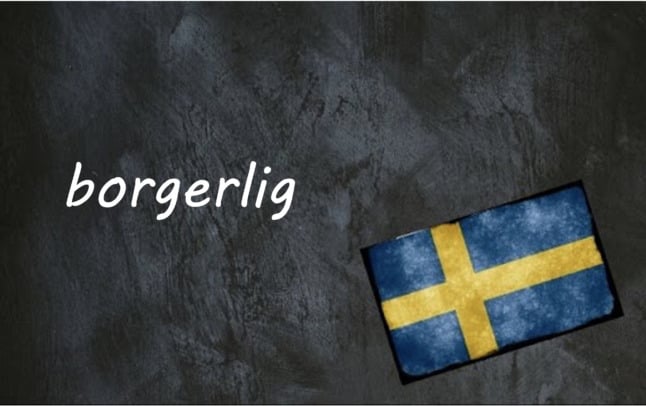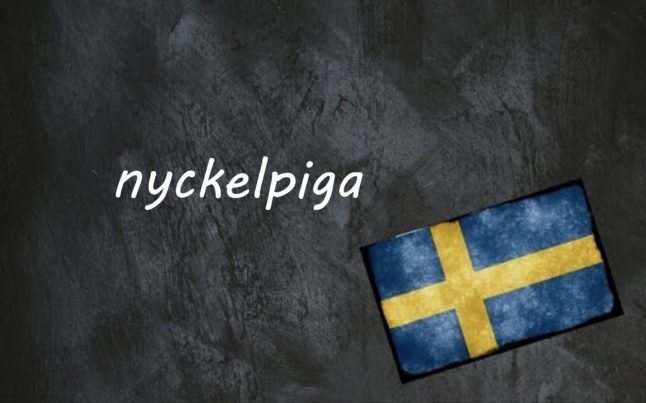The word borgerlig is used when describing a conservative or non-socialist political party. The Swedish parliamentary parties usually described as borgerlig are the Centre Party, the Liberals, the Christian Democrats and the Moderates. These four parties are sometimes also referred to as the borgerliga blocket (the conservative bloc) – although the bloc has become more fragmented, with the Sweden Democrats trying to strengthen ties with the bloc and the Centre Party distancing itself from collaboration with the anti-immigration party.
Borgerlig can also be used to describe something civil or secular. This could be a non-religious marriage where the couple in question are married by a state official rather than a religious official. Similarly, a borgerlig funeral is the term used to describe a non-religious funeral.
In Sweden, a borgerlig wedding can take place almost anywhere – in a restaurant, function room, or even outdoors, as long as there is a registrar present. The venue does not need to hold a wedding licence for the marriage to be valid.
Another translation of borgerlig is a term to describe someone or something middle-class – roughly like the French petit bourgeois. This can have a slightly offensive meaning, depending on who’s speaking.
Borgerlig‘s three meanings may seem unrelated at first, but they all have the same origin. The word borgerlig originally referred to people (borgare – from the German Bürger) living inside the walls of a fort or castle (borg). Later, it became the term used to describe the social class of people living in cities as opposed to people living in the countryside or the nobility.
Finally, this meaning developed to encompass things to do with the state – a borgerlig wedding or funeral is an event where the state is the authority carrying out the ceremony, rather than the church. This meaning can also be seen in the term borgerligt krig – not a middle-class war, but a civil war (although a civil war is more often referred to as an inbördeskrig in Swedish).
Examples:
Visst är det lite småborgerligt att spela padel?
It’s a bit middle-class to play padel, isn’t it?
Vi tänkte gifta oss borgerligt.
We’re thinking of having a civil wedding.
Väljarstödet ökar för det borgerliga blocket.
Voter support for the conservative bloc is increasing.
Villa, Volvo, Vovve: The Local’s Word Guide to Swedish Life, written by The Local’s journalists, is now available to order. Head to lysforlag.com/vvv to read more about it. It is also possible to buy your copy from Amazon US, Amazon UK, Bokus or Adlibris.



 Please whitelist us to continue reading.
Please whitelist us to continue reading.
Member comments